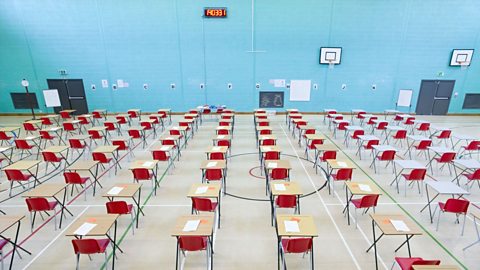Ramadan, one of the most important events of the year for Muslims everywhere, finishes in the first week of June in 2019.
The date is set following the Muslim lunar calendar, and so it moves around a bit. During Ramadan, Muslims fast from dawn until sunset, so when it takes place in summer like this year, this can mean not eating or drinking for up to 18 hours.
We wanted to hear from you about what this is like, what it’s like to revise and take exams during Ramadan, and get some tips on what delicious food to make when the sun goes down.
Ezdihar Abdulmula - basketball player
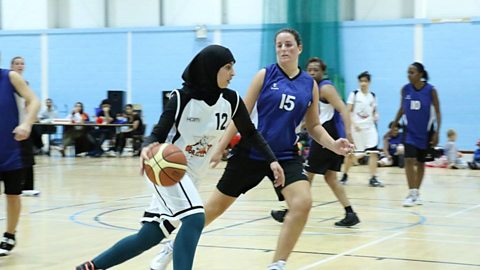
Ezdihar is a basketball player and coach who helped overturn the ban on religious headgear in professional basketball.
She told us that training and playing matches can be hard, as getting a sweat on when you can’t drink any water isn’t exactly easy. However it’s all worth it for her, as during Ramadan she can feel closer to God, as well as spending quality time with friends and family.
Her younger sisters are fasting during their GCSEs this month, and she gives them lots of tips on how to manage: “Make sure to eat and drink during suhoor [the meal you eat before the day’s fast]!" Ezdihar recommends eating good food that will keep you going throughout the day, such as porridge and fruit.
“Additionally, once [my sisters] break their fasts, I try to get them to stay away from junk food and to eat something every hour or so." Ezdihar explains how after fasting "you can get full really quickly, and so breaking your meals up ensures you're getting enough energy from your food.”
One of Ezdihar’s favourite things to eat at the iftar (the meal you have at the end of the day to break your fast) is Sharba, which is a type of Libyan soup made with lamb and mint. For her, eating Sharba always signifies the start of Ramadan. Now that she’s moved out of her family home though, she thinks it’s about time she mastered making it herself!

Hawwa Alam - freelance artist
Fellow basketball enthusiast Hawwa is a freelance artist, photographer, and a student at the University of Manchester. This year she’ll be fasting during her second year university exams.
Ramadan has fallen on exam season a few times, and it can be very physically and mentally exhausting. But for Hawwa, it actually brings comfort: “Ramadan is about strengthening your relationship with your faith, so the fact that I’m doing something difficult for the sake of God makes me less worried about the impact it may have on my exams, not more worried.”
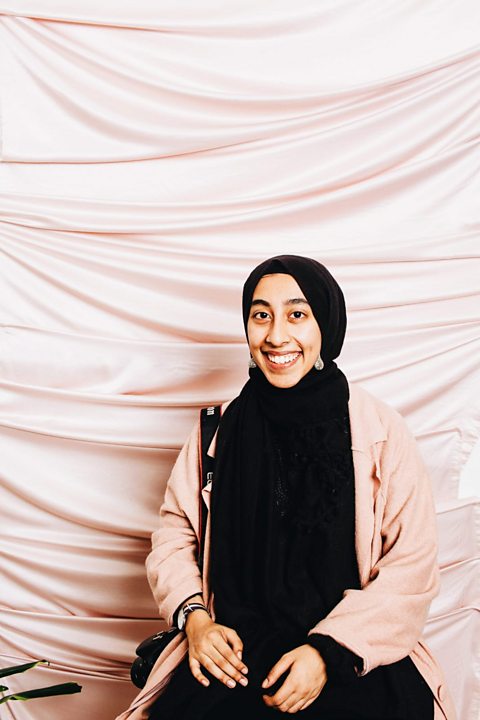 Image source, Maya Mothi
Image source, Maya MothiFor Hawwa, though, what can be frustrating is when people think that she only fasts because her parents tell her to.
After a basketball game on a particularly hot day, one of Hawwa’s teammates suggested she have some water and take her hijab off, and when Hawwa explained that she couldn’t, they said not to worry because her parents weren’t around.
“I remember feeling really upset by that comment, because it implied that she thought my parents simply forced me to fast, I had no agency in the decisions I made and had no personal reason or value in Ramadan, fasting, or my religion at all.”
Despite this, Ramadan is a tranquil time for Hawwa: “It feels calmer and less chaotic, and your heart just feels more at peace.”
Afsana Salik - master's student
Afsana Salik is a graduate from Queen Mary university of London, having studied Politics and International Relations, and is now doing a master's degree in Islamic Studies. She's also a Community Organiser with Citizens UK.
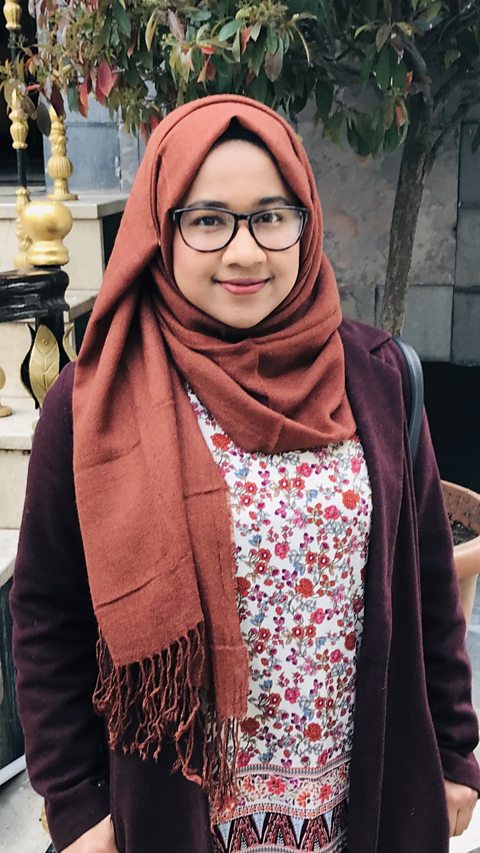
While fasting is an important part of Ramadan, she stresses that there’s far more to it than that: “Ramadan is not about just not eating or drinking, but it is more about being nice to everyone, working on self-development… increasing patience, being kind and generous and mindful about yourself and the actions you do.”
One of her favourite parts of Ramdan is the Taraweeh prayer, which is done at night. She says that during the Taraweeh, “the whole community feels the vibes”. She also loves the fact that she can still get her retail therapy fix, as lots of Muslim shops stay open until 01:00 during Ramadan.
As for observing Ramadan during exams, Afsana says it’s all a balancing act.
She says it is difficult, but “we get to learn how to cope with it and become more aware of the meaning of fasting. In the Qur’an it says ‘God does not burden any soul with more than it can bear’ (Surah Al-Baqarah [2:286]), so we believe that the hunger we face, we can get through it. Our Lord has given us the patience and we will be rewarded for this hardship.”
Maswood Ahmed - motivational speaker
Maswood Ahmed, a member of the Muslim Council of Britain and motivational speaker, also describes Ramadan as a test of self-endurance. When he was doing his GCSEs (or O-levels as they were called then), he fasted for 18 hours, roughly what Muslim students will be doing this summer.
“It was quite hard but I felt strong enough to be able to go through it.”
What are his tips then, for students who are going to be fasting during their exams this summer?
“If you can make yourself strong mentally this will help a lot… But it cannot be achieved overnight. Everything requires practice.
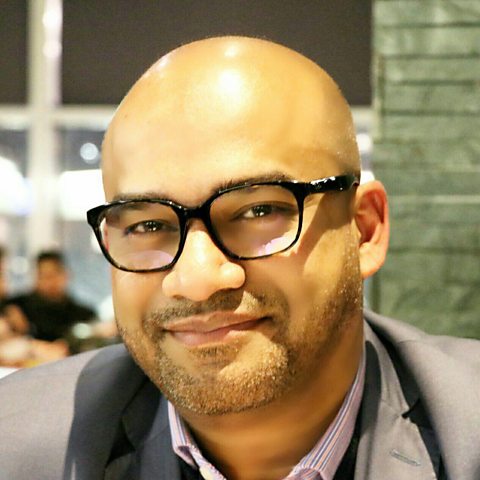
“If a young person finds it really difficult or feel their exams will be completely jeopardised, they can take advice and postpone fasting. Some people find fasting helps them to be more focused and less distracted. As they are consumed in spirituality, they also see the blessings in the work they do, whether its study or work."
If students are planning to fast fully though, his top tip is to focus on the goal at hand: “Just try to remain positive… like when you’re climbing a mountain, you keep the adrenaline going and hopefully that will help.”
This article was published in May 2019

Islam
To brush up on your knowledge of Islam, check out these GCSE Religious Studies guides.
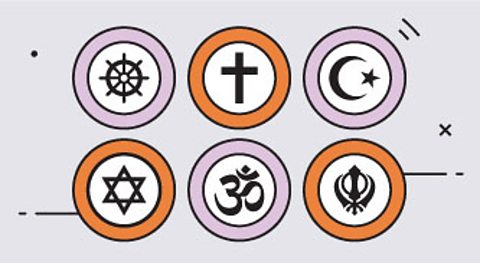
What is Islam?
Ramadan is a Muslim festival, but what else does it mean to be a follower of Islam?
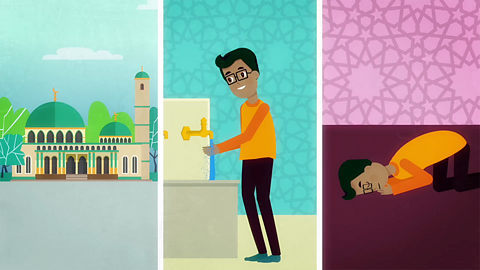
Take our hideously hard GCSE quiz
Are GCSEs as hard as they used to be? Take our quiz and find out.
